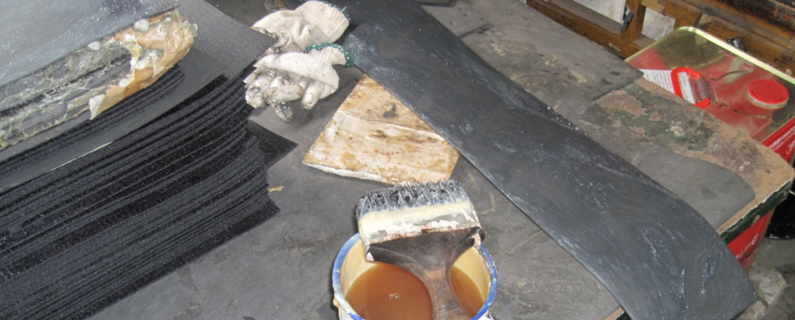That “great deal” you got on a knock-off that works “just like” the name brand could cost you in ways you didn’t contemplate. In 2014, a 28-year-old woman was electrocuted by a faulty USB phone charger. Sheryl Anne Aldeguer was working on her laptop (which was charging) while wearing headphones connected to her smartphone (also charging) when a high-voltage electrical current coursed through the phone charger, through her body, and into the computer. The 240-volt blast stopped her heart. At least five other injuries or deaths have been reported in the two years since, all related to technical devices and their accessories.
In April 2016, NSW investigators seized more than 4500 non-compliant chargers, mobile accessories, leads and batteries from at least two premises in Sydney. Counterfeits of Samsung, LG, Huawei, Motorola and Apple products could pose a similar electrocution threat, as well as a fire hazard. To avoid detection, many of the devices had incorrect approval numbers, leading consumers to believe they were compliant with the Electricity Consumer Safety Act 2004. (That Act requires sellers of electrical articles to appropriately mark that each product is safe according to the code.) Other electrical devices and articles were constructed with inferior components, which also rendered them non-compliant.
Counterfeit Products are Dangerous Products
Even when they don’t cause injuries, counterfeit goods can still hurt your business in a number of ways:
1. Impact on Reputation
Your corporate reputation rests on the consistent, high-quality standards you apply to the production of each of your products. When consumers inadvertently purchase fraudulent knock-offs of your products, they may be disappointed in the product’s performance or the product may fail altogether. Those tarnished goods then tarnish your company reputation just as certainly as if you had issued the fraudulent item yourself. Maintaining a vigilent look-out for potential product frauds can reduce the threat to your enterprise reputation.
2. Impact on Revenues
A. Repairing the reputation
Reputable companies will invest in repairing their customer’s confidence in them, even when it costs them a lot of money. Apple products appear to attract a large number of counterfeiters, and, especially in emerging markets where consumers are not as sophisticated or don’t have much money, high volumes of fake Apple devices and accessories come onto the market fairly frequently. In 2013, the company offered a “trade-in” program where, for a reduced price, consumers could trade in their counterfeit “Apple” product for an authorized version.
B. Absorbing the Losses
Fraudulent parts can show up in contracted shipments, too, before the products are released to the public. Very often in these cases, the samples provided by the factory are obviously of high quality and up to the contract specifications. However, to cut costs, speed through processing or use up excess (but inferior) inventory, some factories will substitute lesser quality parts or components in place of contractually determined ones. In many cases, off-shore manufacturers end up taking delivery of sub-standard goods, only to find, upon opening the containers, that the products they had received were not the products they had ordered and paid for. Very frequently, the discovery of the fraudulent activity comes too late, causing the scrapping of the entire shipment.
Avoiding Fakery
To maintain market share, every enterprise should keep a diligent watch over all aspects of their supply and distribution chains for fraudulent activities that might affect their products, revenues or reputation. While criminals will always try to make a quick buck by selling cheap copies, off-shore producers can reduce their risk of in-chain challenges by selecting factories and supply chain contributors whom they know to be honest, competent and in compliance with local laws and contract rules. Working with a locally based consultant provides them with the experience, the eyes and the ears they need to be fully informed about which factory is best for their project. Some consultants also provide on-going checks to ensure that production maintains contract standards.
Looking For Fraud
There are four main spheres of inquiry to establish whether a particular factory will be a good site for the work:
Proof of established systems
Factories that can produce production and technical manuals that detail methods and practices demonstrate that they understand the need for careful attention to quality.
Attention to product detail
A high level of attention to product detail can reveal that the contract has high value for the factory management and that they are invested in producing a high-quality product.
Consistent quality
Production plants that have long-term relationships with contractors have apparently maintained high-quality performance standards through more than one contract. This indicates that they do not allow that quality to erode (“fade”) over time.
Evidence of fraud
The opportunities for fraud in Chinese and Asian manufacturing sectors are myriad and complex. From impersonating a factory owner to running one factory under several different names, there are hundreds of ways off-shore producers can be tricked. Knowing where to look for the Red Flags require experience and skill.
At Vantage, we’ve worked with hundreds of Chinese companies who have proven their value through thousands of product runs. We’ve also been able to identify those factories that are not worthy of a contract, for many of the reasons outlined above.
You can read more about our encounters with questionable Chinese factories in this excerpt from my book, “Red Flag.” Down load it here.




Hej Carsten. Se interessant ud.
Jeg er stadig i olien. Nu som Country Representative for Dana Petroleum Denmark BV. Vi har just fået en 30 års-license på et felt, som vi kalder Robin Hood. Hvis olieprisen kunne arte sig lidt vil det blive et ganske interessant projekt. Mvh Søren